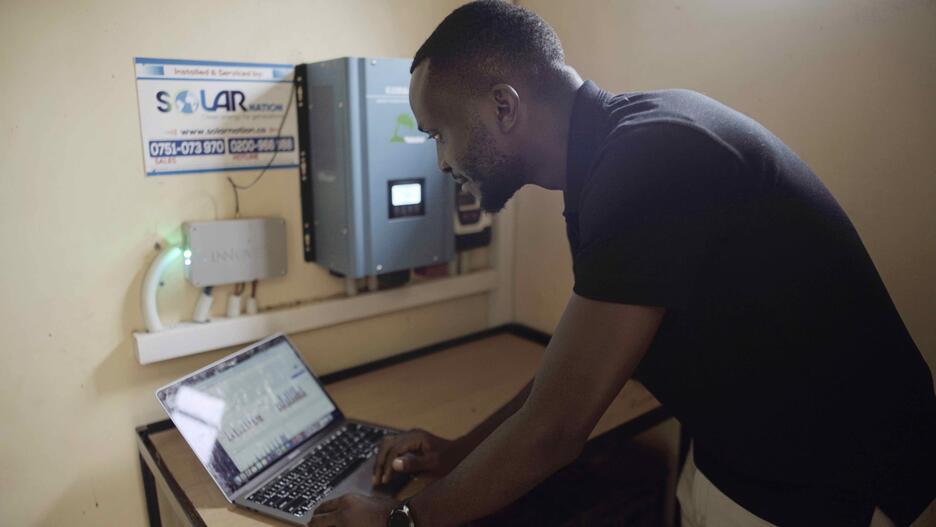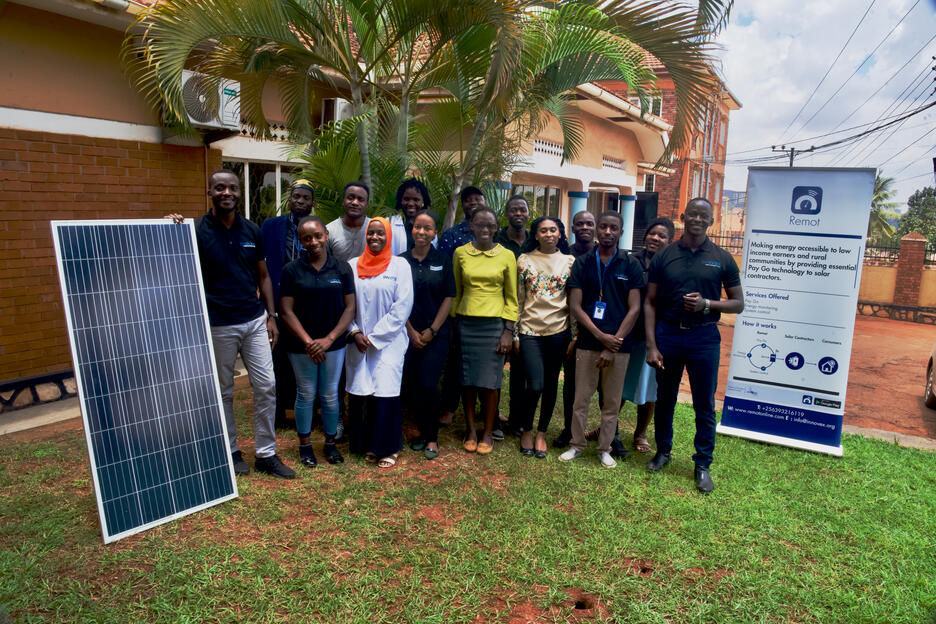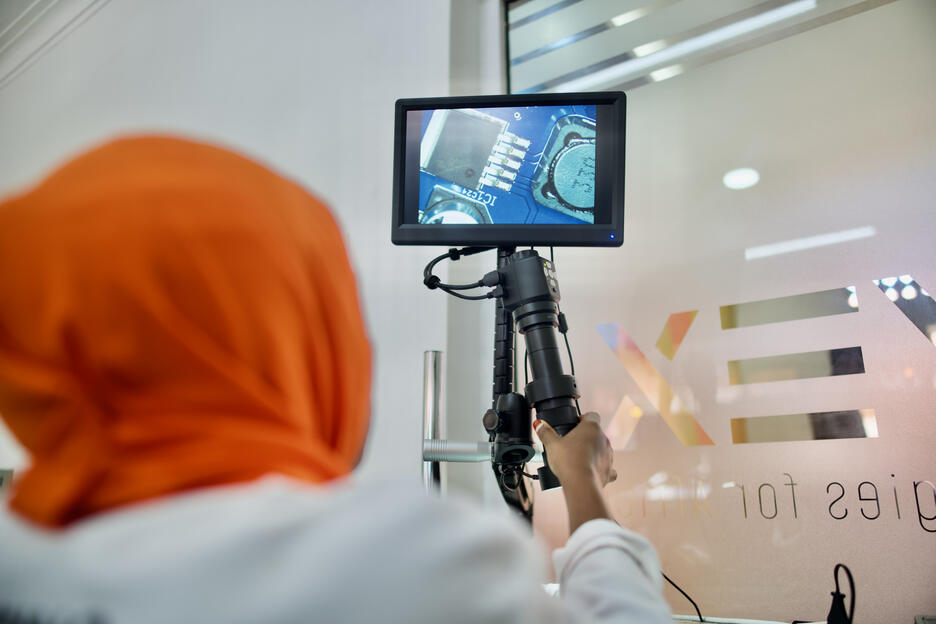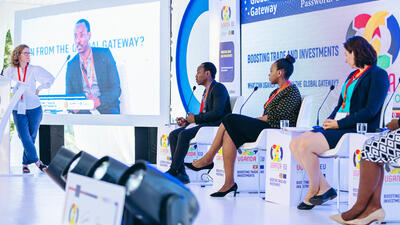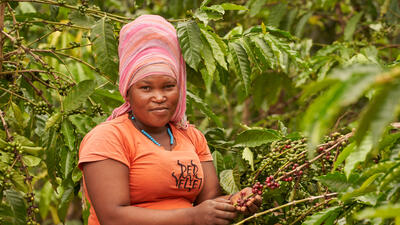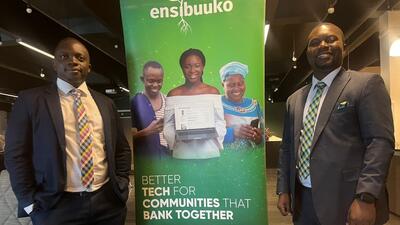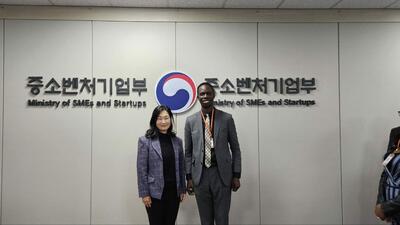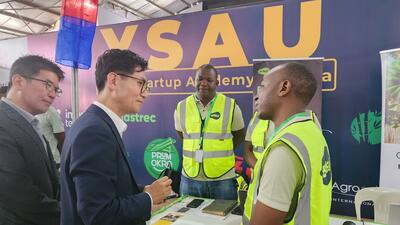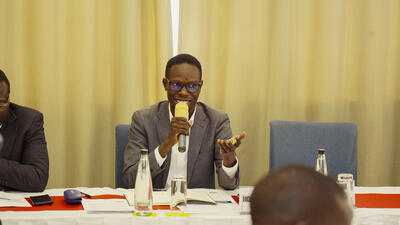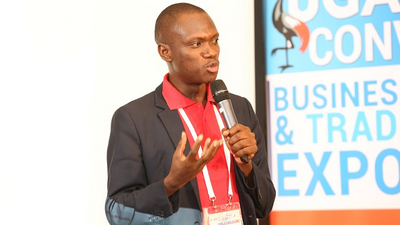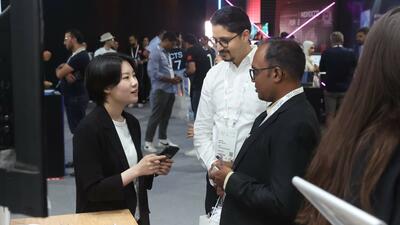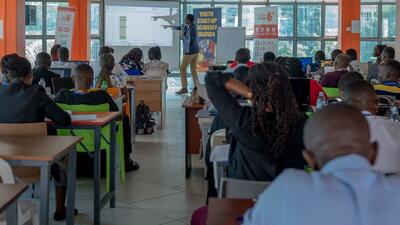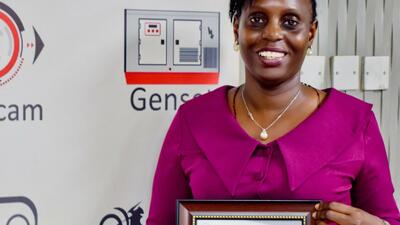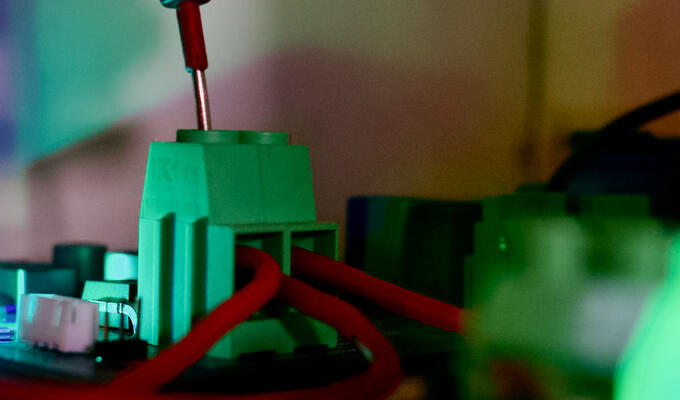
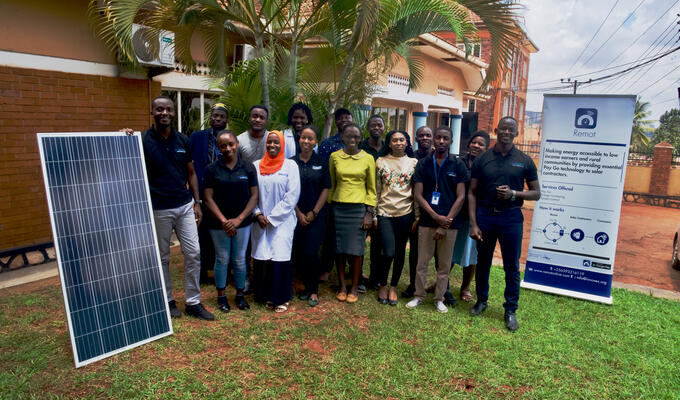
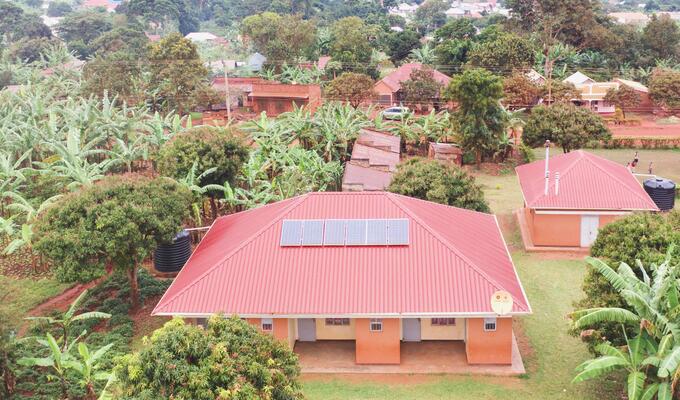
Innovative. Sustainable. Durable. The revolution for solar power.
How do you keep solar power running after the panels have been installed? You only need the right maintenance, says civil engineer Douglas Baguma from Uganda. His company Innovex offers cloud-based IoT solutions that could spur the continent’s use of solar power.
Douglas Baguma has always been fascinated by the sun’s sheer power. When Uganda faced scheduled blackouts throughout the 90s, Douglas’ father would use his solar-run battery so that the family could watch the late night news.
Even when Kampala connected to the national grid after 2001, tech savvy Douglas decided to follow the path of renewable energy.
“I tried to find an intersection between studying civil engineering and my passion for electrical and electronics engineering. These are core qualities for the solar industry.”
And that has always been Douglas’ goal.
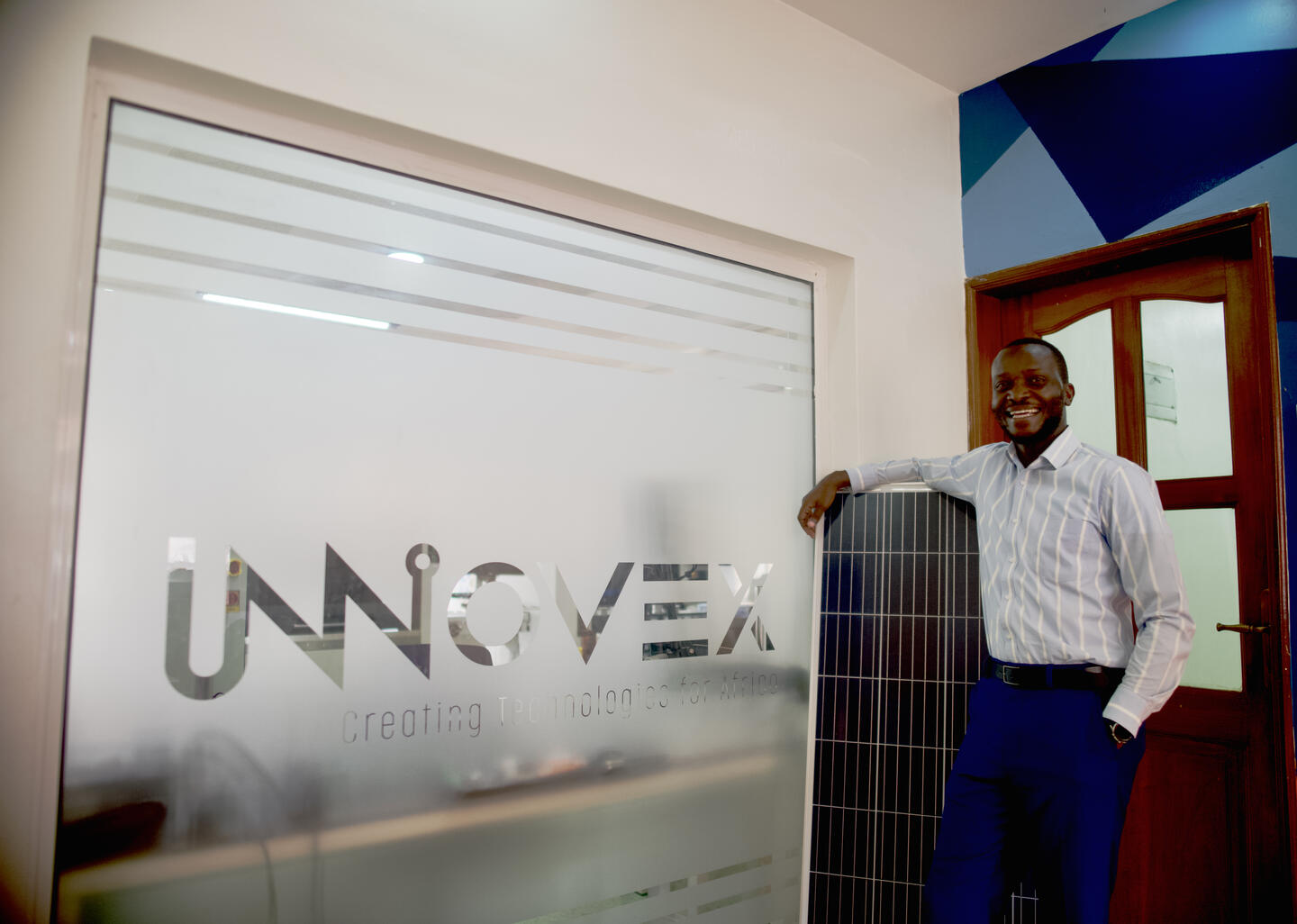
After his postgraduate diploma, the Centre for Research in Energy and Evergy Conservation hired the young graduate as a consultant in renewable energy. Known as expert in setting up mini-grids, Douglas worked as a consultant for German development agency GIZ.
This is how Douglas came across dozens of solar systems that had been installed at health centres in Uganda’s rural communities. Ninety percent of them had solar as the primary source of electricity as the villages are not connected to the national grid system—but to Douglas’ surprise, most of them did not work.
“Some health workers were delivering babies by candlelight. Sometimes there was no hot water, which is critical for sterilizing surgical equipment.”
Douglas quickly came to realize that those who had installed the panels were not aware that they no longer worked: without maintenance, the installations were vegetating instead of producing. Many health centres had equipment, but no one was using the computers because there was no electricity.
Video
The landlocked country’s 45 million people are struggling with access to electricity – 80% of Uganda’s rural population has no access.
The same picture can be seen across Africa: half a billion people do not have access to electricity.
Solar power is sometimes the only solution– and that holds true for many communities in Uganda.
Solar energy may well be a green and cost-effective solution to the chronic power issues faced by many African countries, but its potential is largely untapped across the continent, according to the Financial Times. Unlike Europe and North America, which have considerable installed capacity but lower average rates of potential solar energy, many African countries have been beset by problems concerning the electricity grid, regulation and attracting capital.
On top of that, solar systems need constant maintenance – and can be quite expensive for small communities. This is what Douglas set out to fix.
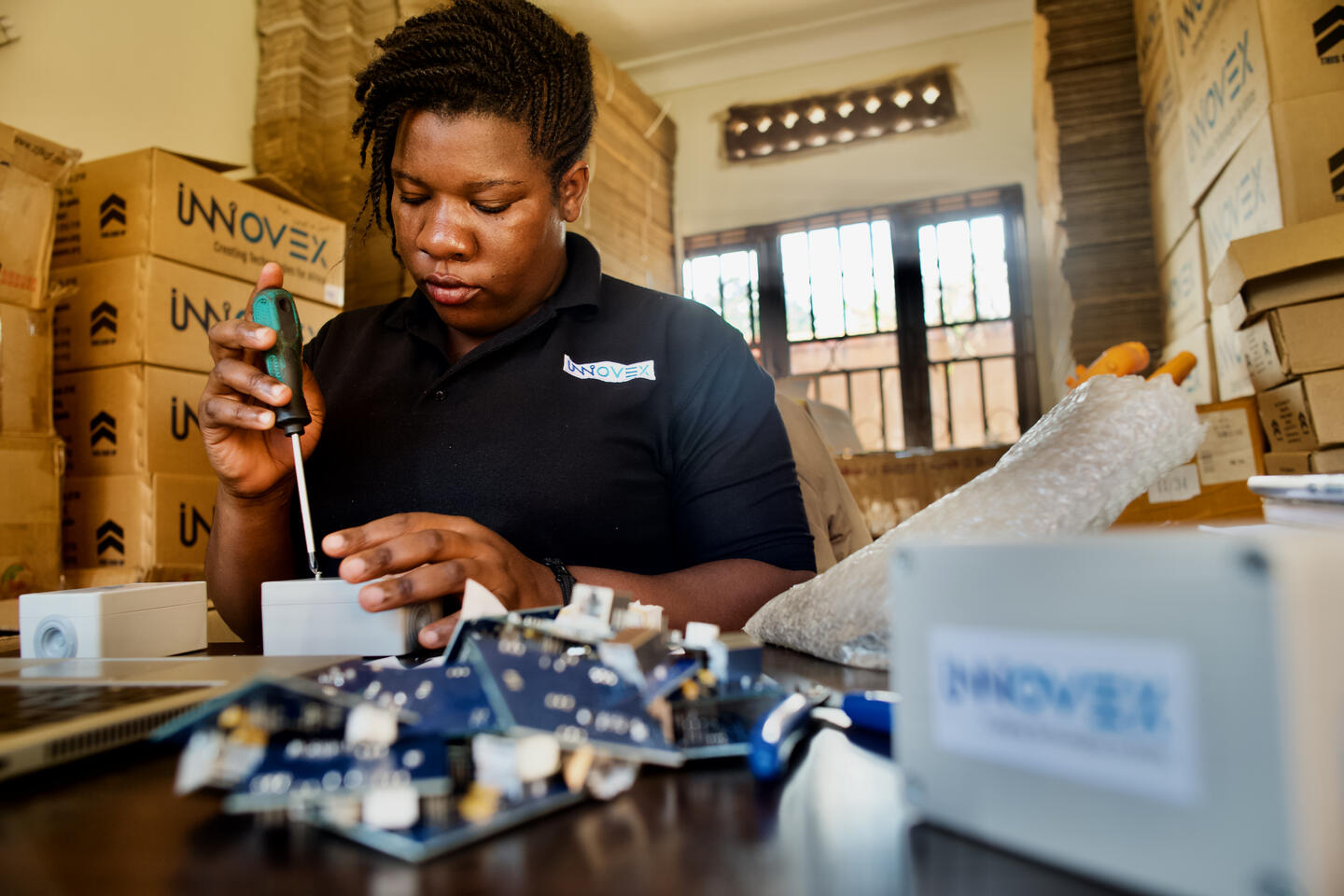
“Because of my exposure to IT, I was able to think outside of the box and connect the dots – this is where the idea of Remot started.”
The then 26-year-old contacted his high school friend David, a robotics expert, and developed a unique device that connected to a web-based platform: Remot.
When the device is connected to a solar system, it will measure the performance of the solar system in real time. If any failure is about to happen, it will send an automated message to the responsible focal point, to let them know what the problem is.
It collects data, measures it, and then uses mobile connection to send the data online. By using a smart phone or any Internet-enabled device, engineers can observe the solar system’s performance from anywhere in the world, anytime.
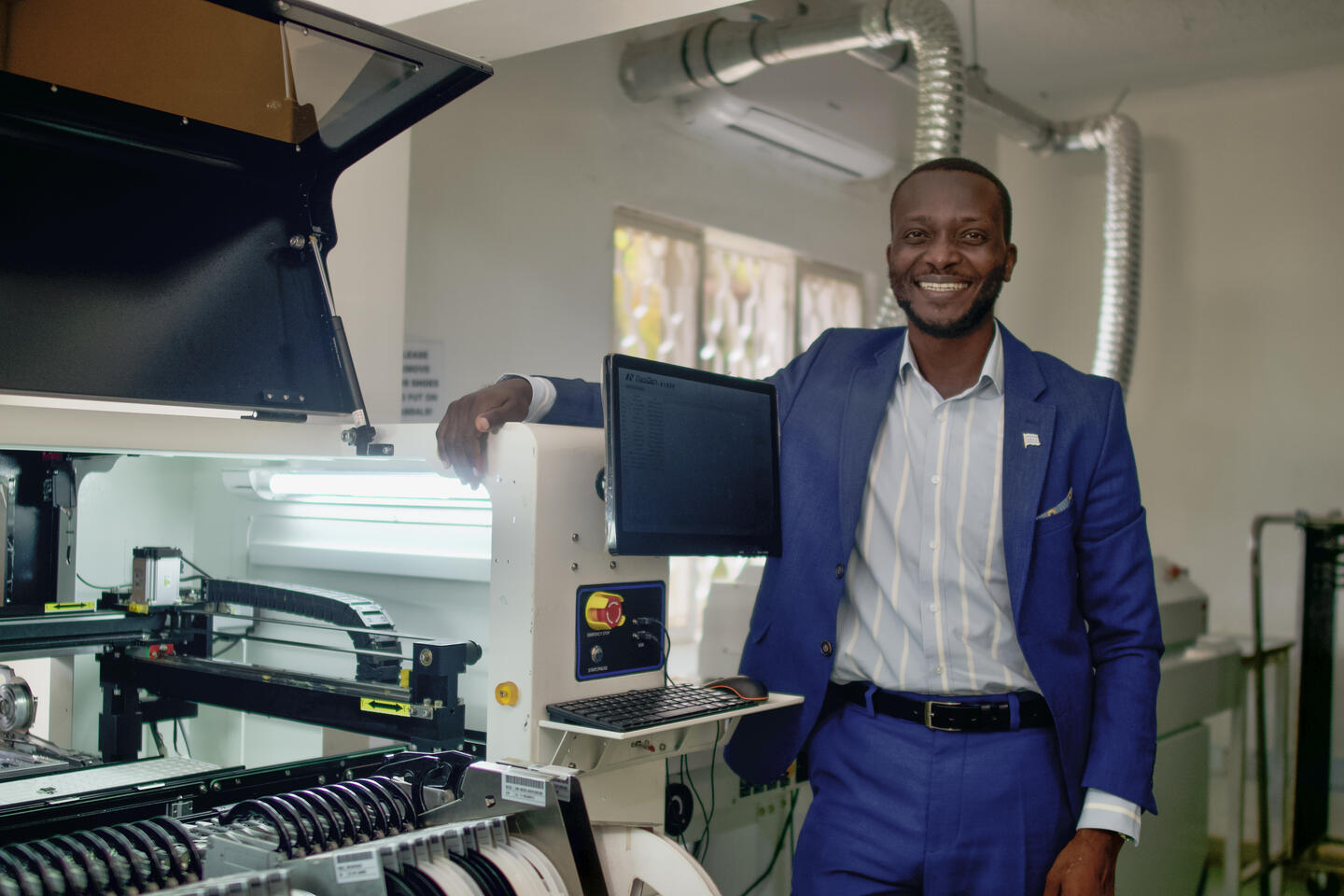
Douglas explains that it was only thanks to his network as a consultant that he was able to sell the first prototypes in 2017 to keep his idea going; because producing hardware locally is limited with high costs for lab equipment and associated research and development.
“The initial prototype was bulky, the aesthetic off.”
As solar producers faced huge losses in maintenance and repairs, they were willing to pay the start-up: it was charging only a small fraction of their losses. Luckily, Innovex received several grants from various partners, such as the United Kingdom through DFID, CISCO, USAID support programmes, or the Ikea foundation, which enabled them to acquire necessary equipment and hire skilled employees.
What started off as two friends, is now a team of 22 staff with equity investment from the GAIA Impact Fund. The business-to-business concept means selling the tool directly to solar distributors. Each time they need to make an installation for a new client, they must install REMOT’s smart metre along with it, which means repeated sales.
The pay-as-you-go feature also makes the installations more affordable through smaller installment payments. Solar companies that distribute big-sized solar panels also use the feature for invoice or payment tracking.
Even though the growth of the solar industry has been grately affected by the COVID-19 pandemic, the future looks bright: scaling to new markets by hiring salespeople in Kenya and Nigeria might give the company the needed boost. Through building the core digital tools the continent needs for solar power, Douglas hopes to reach millions of Africans.
“It is the best time for African entrepreneurs to be alive. Investors are willing to take more risks because African economies are the fastest growing in the world, with a market of close to 1 billion people growing year by year.”
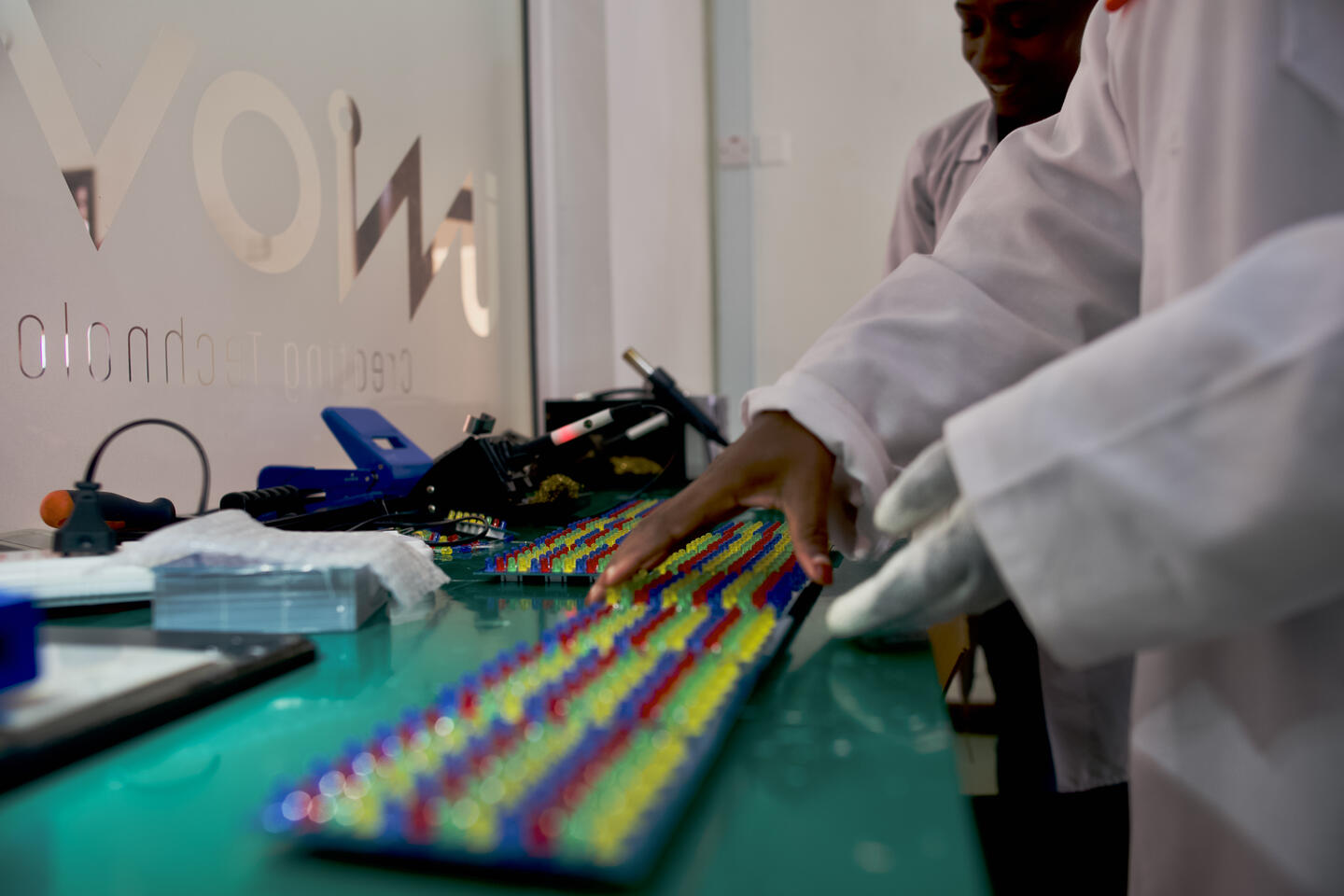
1. Don’t feel discouraged.
It is possible to compete and put African-made products on the market. You have lots of leverage as an entrepreneur. You are the best person to build a solution. You understand the problem and the customer. Investors look for that.
2. Many entrepreneurs are sceptical about sharing their ideas.
But an idea only starts growing when you share it with someone, and no one can execute the idea better than yourself.
Innovex benefited from the International Trade Centre’s Netherlands Trust Fund (NTF) programme and its network, funded by the Netherlands. The NTF IV programme supports small businesses and start-ups like Innovex in the IT and ITES sector to develop competitiveness. Moreover, through its innovative idea, Douglas was one of three finalists in the ITC Ecopreneur Awards 2022, funded by the organization’s youth and trade and GreenToCompete programmes.





